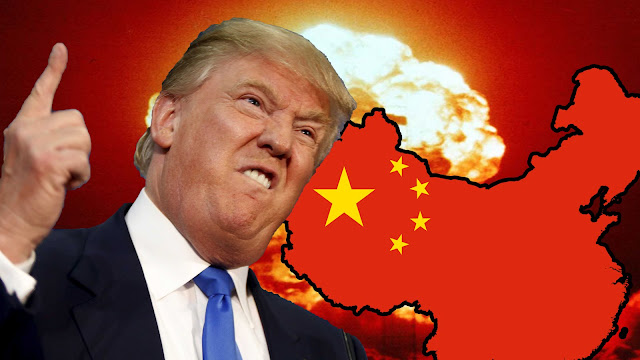Donald Trump talks directly tough on China issues after appointing trade hawks Wilbur Ross and Peter Navarro to key positions in his administration. He even threatened to slap a blanket tariff on Chinese goods and talked to Taiwan's president, which was regarded as a big diplomatic offense.
 |
This is just how Trump opens the “China negotiations” to reach a mutually beneficial trade relationship, according to "Road to Ruin" author James Rickards.
"[Trump] is saying to China: 'Here is where we are going to start, what have you got for us? Are you willing to be more flexible on foreign direct investment, are you willing to treat U.S. companies in China more fairly, are you willing to stop the theft of intellectual property?' If The world factory makes concessions on these points he can say, 'Fine, now my tariff is [lower].' It's the art of the deal; people don't understand that about Trump," Rickards told the BBC.
In any deal, however the other party has some negotiating chips on the table as well, and China, for instance, can hurt American companies exporting to China or American companies operating in China.
So who will lead the negotiations? A report by research firm Geopolitical Futures (GPF), the United States would suffer some loss in the trade war, but would lead the situation in the end.
"China would feel the impact of U.S. protectionist measures more than the U.S. would feel any economic retaliation China has at its disposal," the report states.
What's at Stake?
The most essential point for US and China is the symbiotic relationship between China the exporter and the United States the importer. Between Chinese workers who make cheap goods and U.S. consumers who purchase them.
United States imported $483 billion worth of goods from China in 2015. Since China joined the WTO in 2001, the States was the top importer of Chinese goods in all but one year.
An interesting experiment shows, about 15 million Chinese workers in the export sector could lose their jobs if Americans stopped importing from China altogether - a nightmare for the Chinese regime, which depends on employment to keep the people happy and itself in power.
So will the US companies doing business in China can still benefit a lot? They have to face the pressure from the environment, the rate, and the policy. My friend who was working in a Shanghai company told me of his problems of finding the good suppliers with healthy credit score.
Focus on:We, eGTCP, welcome you to applying for GTCP(Great Tao credit purchasing card), you can get $10,000 immediately, buy more, pay later, let's get started!
Follow us:













没有评论:
发表评论